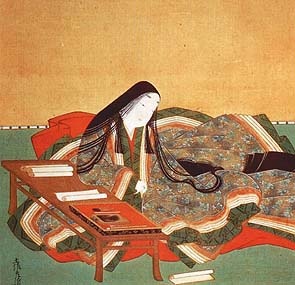Incense short history and benefits
|
|
Japanese Incense or 'Koh'
The Japanese word for incense is 'Koh' and the aesthetic practice of 'Koh-do', literally the 'way of the incense' or the Incense Ceremony is now part of Japanese culture. Incense can be enjoyed in highly formalised settings or ceremonies or simply at home or the workplace. Its use now is affordable, accessible and transcends cultural and religious boundaries.
Incense
has existed throughout human history, with familiar reference made in
the Bible; where two of the three gifts from the Three Kings to the
Christ Child were aromatics - Frankincense and Myrrh.
Incense
and aromatics have played significant roles in the cultural, social and
religious lives of the Egyptians, Greeks, Romans and throughout the
Orient. In particular, the first record of incense in Japan comes from 595 CE (1st Century) and is coincidental with the arrival of Buddhism
there. From ancient to modern times incense has had a direct relationship with peaceful images and a more relaxing life.
| | 
|
Incense benefits
The Japanese attribute the '10 Virtues of Koh' - which describe the benefits to be gained by using incense - to a Zen Buddhist priest from the 16th Century, who noted the virtues as follows:
1. It brings communication with the transcendent
2. It purifies the mind and body
3. It removes uncleanliness
4. It keeps one alert
5. It can be a companion in the midst of solitude
6. In the midst of busy affairs, it brings moments of peace
7. When it is plentiful, one never tires of it
8. When there is little, still one is satisfied
9. Age does not change its efficacy
10. Used everyday, it does no harm
Much time has passed and our lives are different from when this was written - but these virtues still hold true today.
The outcome of 'listening to incense' is summed up beautifully by Lady Murasaki, author of The Tale of Genji, written in the 11th Century in Japan and often referred to as the world's first novel:
" hito no on-kokochi ito en nari " " One's mind has become elegant " |  |
|
|